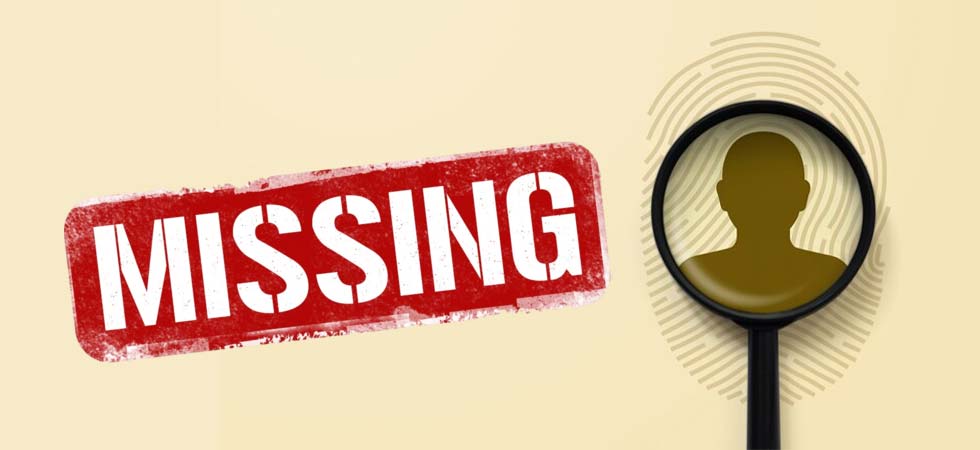Private Investigation

Background Investigations
This is an investigation into a person’s personal and professional history to validate their character and identity. A background investigation is carried out to ensure a person is of good conduct, trustworthy and reliable. It is most suitable for hiring a nanny, an employee at a firm, appointing a public official, making an investment, or finding a new tenant. Such an investigation is not limited to criminal records, credit and military history, work references. You can also review their academic history. Most people lie about their educational background, memberships in organizations, and work history.
Despite finding most of this information online, most of it might be outdated, incomplete, or misleading, and therefore the need for an investigator. An investigator can have as little as just the name to work with. You can still add information like the subject’s date and location of birth, social security number, schools attended, degree awarded, and past employers to help speed up the investigation. A background investigation can prevent you from hiring unqualified employees who lack integrity and can lead to losses in your company due to fraudulent activities.
See our Background Investigations page for more information.

Divorce/ Child Custody
Most divorces that occur are due to infidelity. An investigation is carried out in such a case, and with proper circumstantial and legally acquired evidence, then a divorce petition can be made. In cases like this, a spouse who sues for divorce is awarded a more significant part of the property. In a no-fault divorce, the property is divided equally among the couple. There are some cases where after a divorce or separation, one parent hires an investigator to gather evidence that proves the other unfit to have custody of the children.
An investigator looks for evidence like physical and mental abuse, alcohol and substance abuse, or children’s exposure to danger. This evidence may render a parent unfit to care for the children. Therefore, you need a child custody investigation if you are concerned about your children's wellbeing and safety, you want peace of mind, if the law has required it or if you have been falsely accused of neglect and abuse. Based on the investigator’s findings, you may be granted these types of custody; legal custody, joint legal, joint physical, physical custody, and sole custody.

Infidelity
Infidelity can be defined as a violation of boundaries in a relationship. The relationship can be marriage or exclusive commitments like engagements or dating. Infidelity investigation services may include domestic investigation, married, matrimonial, and affair investigation. Investigating whether a partner is unfaithful is an overwhelming experience. That is why certainty is vital; it is challenging to prove unfaithfulness if we are only working with hunches. Some of the evidence investigators look for are calendar appointments, social media communications, emails and chat messages, browser history, and cloud storage activity. However, it is possible for the court to dismiss a case based on only flirty SMS or a dating profile.
Other types of evidence might be photos, videos, or the spouse admitting to infidelity. There are also indirect means like bank and credit card statements to prove purchase or gifts, air and travel records, phone records with phone calls between the two may back up the other evidence you have. Still, the catch is that you have to prove that you acquired this evidence without breaking any law.

Asset Recovery
Asset recovery involves recovering any proceeds of corruption that have been transferred abroad. These proceeds may include embezzled public funds by corrupt agents or even profits and benefits a company gains from paying bribes to a foreign official. In the direct recovery of assets, a foreign state can initiate a civil action to claim ownership of property in a foreign jurisdiction. In such proceedings, the legal basis for claims can either be claims for damages or ownership claims.
When confiscation is ordered in a recipient country, the assets can be returned directly through court orders or ad hoc asset sharing agreements. While when ordered in a victim country, the return requires a request to the victim country's recipient. There are three stages in the confiscation and return process; identifying the assets to prove they were acquired unlawfully.
Next, the assets are tracked by conducting investigations aimed at establishing that they were unlawfully obtained. This tracking process requires expertise and resources. The second stage is freezing and confiscating assets. Confiscation can either be property-based, where you identify a particular investment, or value-based, where you determine the monetary value of assets that cannot be recovered materially. Lastly, the assets are recovered and returned in the third stage.

Fugitive Recovery
In this process, fugitive recovery agents, referred to as bounty hunters, locate fugitives who have fled court appearances. Most bounty hunters have a background in law enforcement, and their main aim is to apprehend offenders lawfully. They mostly work together with bail agents. Fugitive recovery agents have to be skilled and trained on apprehending a fugitive without going against the law. They use various surveillance, background, and criminal records checks, contacting fugitive relatives to disclose locations, or convincing them to surrender. They also use research and trickery to bring in the fugitives.
Like most law enforcement agents, these recovery agents are supposed to be trained to make them capable of handling a fugitive because one can never tell what to expect. They receive training on self-defense, firearms, field training, transporting criminals, entry and seizing the culprit, and the legal and bail bond processes. Additionally, these agents are required to understand statutory laws, detainee civil rights, laws regarding surveillance, and the procedure of surrendering the fugitive to the authorities. These laws defer in different states.

Skip Trace
Skip tracing is the process of looking for a defaulting debtor, customer, or person who has no wish of being found. A skilled investigator can locate a person and provide information on their current whereabouts in real-time. This process requires many database investigations. An investigator may need to look into resources like job, credit card and loan applications, air travel and public tax records, utility bills, phone number databases, and criminal background checks. In what instances can skip tracing be used?
Other than finding delinquent debtors, it can be used to find a family member who has gone missing, a fleeing suspect of criminal activity, to check whether a family member is dead or incarcerated, lawyers may use it in court cases to find witnesses and defendants and also locate beneficiaries to a will in case there are no contact details of them available. Journalists can also use it.
Steps involved in skip tracing:
An investigator familiarizes with the subject by verifying the information a client provides and correcting any misinformation. Depending on the situation, a skip tracer can observe the various places they usually hang out; they may interview and question those close to the subject. Additionally, they can impersonate someone else to know where the subject is likely to hide or use informants.

Surveillance
This is observing an object, a place, or person closely to determine their interaction or whereabouts. There are various reasons why surveillance is critical; it can be used to prevent a crime from happening, get evidence of a crime, document a person's whereabouts, and gather the information that can be used in a court of law. A surveillance investigator can also use surveillance to obtain information that would be useful in interrogations.
Surveillance can be used in fraud investigations, missing person investigations, infidelity, vandalism, a criminal investigation, and workers’ compensation cases. Some of the common types of surveillance include electronic where devices like wiretapping, televisions, and radios are used. The investigators also monitor phones, emails, and social media activities. Another type is physical observation like stakeouts, interviews, and technical surveillance like cameras and audio recordings.
There are also various methods of surveillance used, for instance, overt where security cameras prevent thieves from stealing, covert where an investigator trails a subject undetectably. Machine and human oversight; the machine uses equipment like video cameras and voice recorders, while humans use an investigator as the source of information. Lastly, there is mobile surveillance – the investigators follow the subject around, whether on foot or in a vehicle, and stationary surveillance where the subject is watched from a parked car.

Missing Person
Missing person investigations help people find out the truth about people they cannot find. A missing person investigation can be used to find a loved one who has disappeared, voluntarily or involuntarily, a fugitive fleeing from the law, a delinquent debtor, kidnapped minors, and runaways. Anyone can hire an investigator to find out about someone’s whereabouts. These investigators use various techniques to locate these missing persons. Among the techniques are fugitive recovery agents to track criminals, surveillance to find a suspect, searching facilities like mortuaries and hospitals, questioning witnesses and doing background checks, physical searches by sea, air, land, and paying informants or engaging other private investigators. In a missing person investigation, police do not start to look for the subject immediately for cases like a kidnapping. There is a period before a person is declared lost, mostly 24 hours after they were last seen, and at times this may be too late for people who have been kidnapped. However, during the investigation, the first 72 hours are crucial because witnesses’ memories are still fresh, an investigator can get a lot of information hence protecting the integrity of evidence.

Process Serving
This is a legal procedure where all parties involved must be informed when facing legal action in administrative court or a court of law. The documents are hand-delivered to the person the legal action is directed by process servers who are impartial and neutral to the legal action. These court orders and legal documents are to be delivered following the law to ensure that the process is carried out on time and to the correct location and person.
Examples of legal documents delivered by process servers are divorce and bankruptcy petitions, claim forms, witness summons, injunctions, statutory demands, and insolvency documents.
There are three types of serves that process servers offer; same-day serves, rush, and routinely serves. Sometimes, the defendants may know they are about to be served and try to avoid these documents at all costs, some going as far as pretending to be someone else or even fleeing the country. In such cases, those making claims have to attempt severally and record that they tried what they could to serve the documents. They can only use substitute services like newspaper, email, and social media and serve a third-party who is in regular contact with the defendant. They become responsible by law for ensuring the papers reach the defendant.
Elevate your business security with the best in the industry!